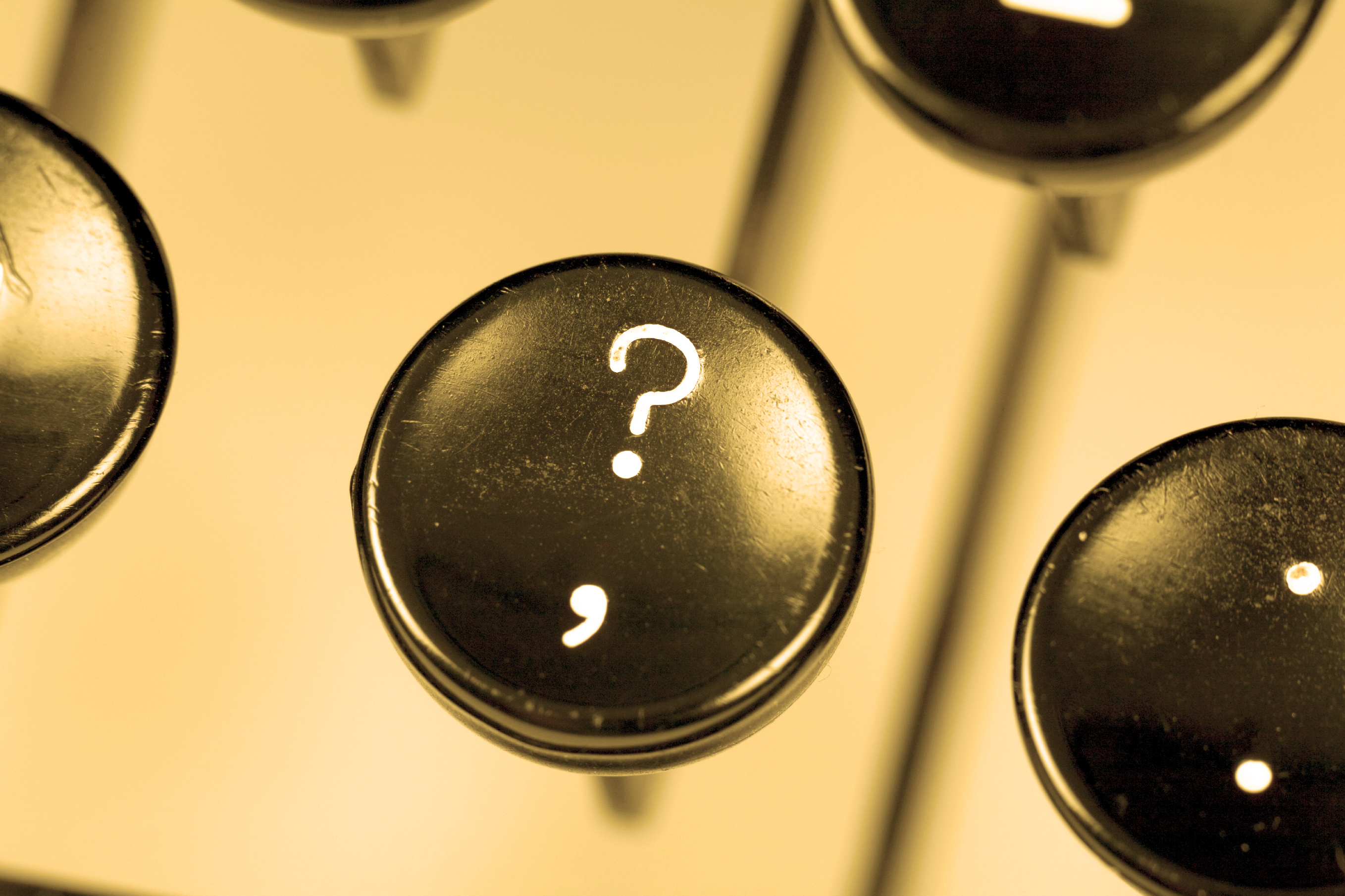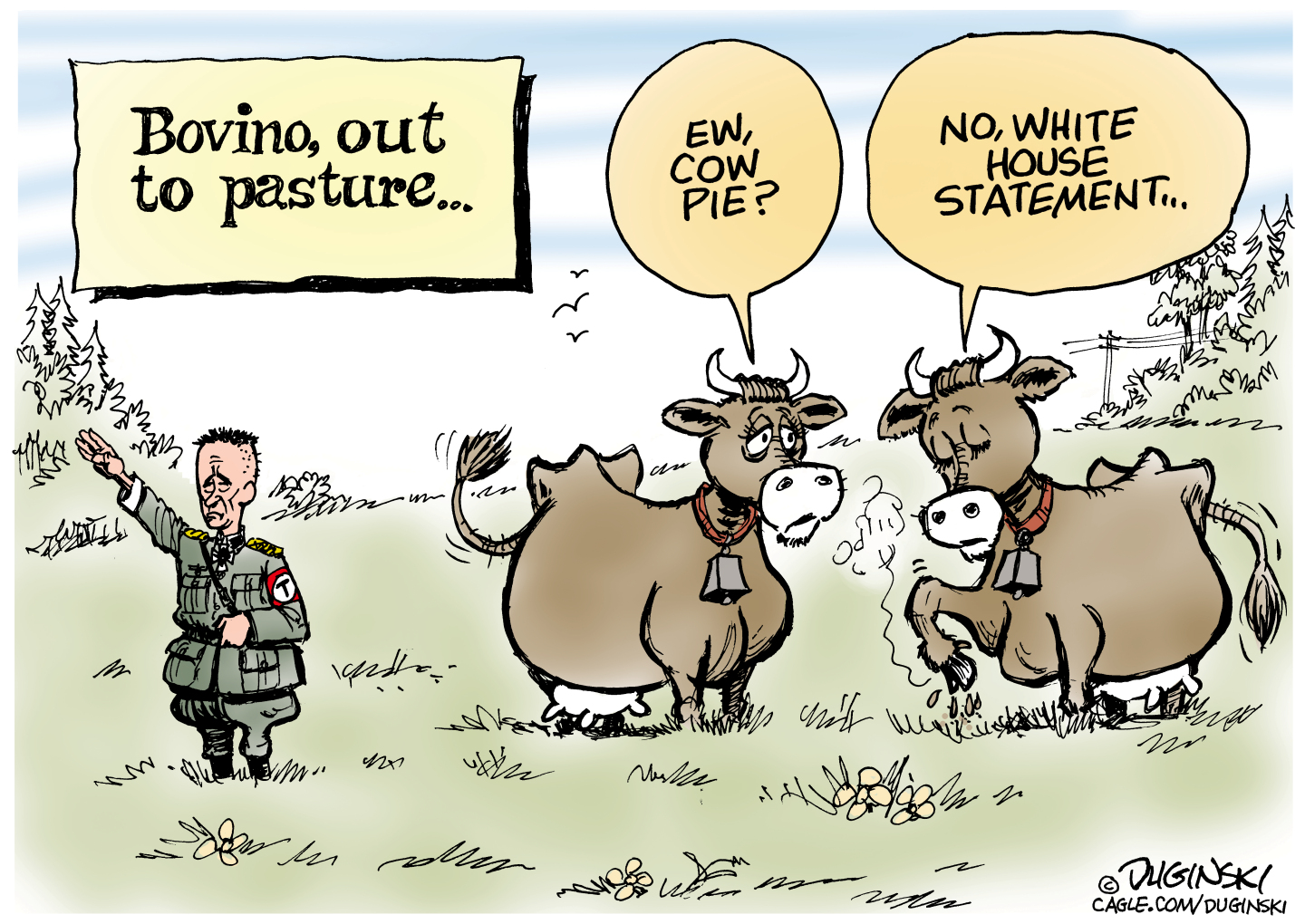Why we should stop using an apostrophe s for possessives
For one thing, it's not a proper suffix


It's about time for our possessives to do a reverse Pluto.
Pluto, you know, used to be a planet. Then it got demoted. This is like a word being turned into a prefix or suffix. Well, my unlikely-to-happen-anytime-soon-even-though-there's-a-good-justification-for-it proposal this week is that our possessive marker, 's, should be written as a separate word. Planethood for the possessive! Here's why.
It's not a suffix.
The Week
Escape your echo chamber. Get the facts behind the news, plus analysis from multiple perspectives.

Sign up for The Week's Free Newsletters
From our morning news briefing to a weekly Good News Newsletter, get the best of The Week delivered directly to your inbox.
From our morning news briefing to a weekly Good News Newsletter, get the best of The Week delivered directly to your inbox.
Let's talk for a moment about the lady with all the money. Well, the lady with all the money's cat. Actually, it's the ladies with all the money. Or, anyway, the ladies with all the money's cats.
This possessive 's is like those cats: you think they belong to the ladies, but they don't always go where the ladies go. As proof, compare it with the suffix –s that denotes a plural. If there's more than one lady, you say "the ladies with all the money," you don't say "the lady with all the moneys." And yet if you want to use the possessive, you don't write or say "the lady's with all the money cats." You say "the lady with all the money's cats" (or else you rephrase, as you probably would in a formal written document, for clarity).
And even though the possessive of ladies is ladies', you still don't say or write "the ladies' with all the money cats." In ordinary speech, it's perfectly common and understandable — if a bit ambiguous — to say "the ladies with all the money's cats." See that? The 's is supposed to become just ' on a plural, but you won't see "the ladies with all the money' cats." (Of course you won't hear it; you can't hear these apostrophes.) The point is, we don't use 's like a normal inflectional suffix.
Does that mean 's is an independent word? Actually, it's something in between: it's a clitic, specifically an enclitic (because it attaches at the end). It's more than a suffix — it moves around with greater freedom — but it's never stressed, and it has to lean on the word before it (that's what clitic originally means: "leaner").
A free daily email with the biggest news stories of the day – and the best features from TheWeek.com
The problem is that we don't have half-spaces. We either write something as a separate word or attach it to the word next to it. But it doesn't make perfect sense to attach the 's to the last word of a noun phrase like the lady with all the money when it's not just attaching to money. So we might as well write it as a separate word.
Some other things that act like it are separate words.
There are other clitics in English. For the most part, they're words that are sometimes fully stressed and sometimes clitics. For instance, have becomes a clitic, usually pronounced "a," when it's an auxiliary verb following another auxiliary verb: "I would have done it" is usually said as "I woulda done it." The "a" isn't really part of the word would, but it's leaning on it. The definite and indefinite articles, the and a/an, are clitics (proclitics, because they come before) except when emphasized (as in "It's a chance but it's not the chance").
Other languages do it.
Does it seem odd to write something as a separate word when it's just one consonant? It doesn't bother speakers of Russian, Polish, or several other Slavic languages. In Polish, for example, the word z means "from." It's said just like "z" tacked onto the next word — or like "s" if the next word starts with a voiceless consonant: z Polski (from Poland) is said "spolski."
Does it seem odd to write the possessive as a separate word after the possessor, rather than before as with of? Afrikaans does it. Instead of having something like Jan's boek for "Jan's book," Afrikaans speakers have Jan se boek. Sure, they have the possessive pronouns like English does, and I'm not suggesting we replace my, our, your, etc. with me 's, we 's, you 's (that could sound like Jar-Jar Binks!). But when it's not a pronoun, they use the separate word se rather than a suffix.
We can get rid of the apostrophes.
Those apostrophes are just a nuisance, and they have no great reason to be there. After all, 's isn't from a contraction. Originally –s was just one of a few different suffixes English used to indicate the genitive (possessive); it ended up becoming the only one, and later on some people thought it was short for his or has and decided it should have an apostrophe. But they were wrong. And now we have all those annoying apostrophes that confuse many people — and irritate many others when they see people getting confused by them. So why not get rid of them? If we make 's a separate word we can just spell it s: "The lady with all the money s cats." No lack of clarity there. Or, even better…
We could spell it z.
We have enough s's in English. Generally, z is way cooler. It's rakish and angular. Of course it's partly cool because it's rare, but it sure would stand out clearly: "The lady with all the money z cats."
What if it's pronounced "s"? We wouldn't have to change the spelling. Look, we say have to as "hafta" and no one's upset. After voiceless consonants (p, t, k, f, th), 's is pronounced "s," but the rest of the time — including after the voiceless s and sh — it's pronounced "z." So z wins.
It's all-purpose: singular or plural.
What about plurals? If we're going to write "the ladies with all the money z cats," then it makes sense to write "the ladies z cats" too, right, instead of "the ladies' cats." Gets rid of that apostrophe confusion too. But then we'd be writing a letter we don't actually pronounce!
Oh, right. Because we've never done that before. Next.
We can distinguish it from is.
If we write it z there's no risk of mistaking it for the contraction for is. Look: "The lady with all the money's driving" = "The lady with all the money is driving"; "The lady with all the money z driving" = "The driving of the lady with all the money."
Oh, yeah, by the way: We can keep the contraction for is as 's because (a) it's short for is and we use the apostrophe to stand for missing letters, and (b) although it attaches to whatever word is before it, there's no ambiguity, because the verb always applies to the whole noun phrase — in "The lady with all the money's here" you know that it's the lady who's here.
Added bonus!
As I said, I'm not proposing changing the possessive pronouns. They're a different beast: pronouns get inflections regular nouns don't in English. But there is one pronoun that could change… How about if we started writing the possessive of it as itz? Then people could stop flipping out about misplaced apostrophes ("It's not it's, it's its!"). But if they really enjoy flipping out, they could get in a twist about people writing it z with a space rather than itz without a space. See? Something for everyone!
James Harbeck is a professional word taster and sentence sommelier (an editor trained in linguistics). He is the author of the blog Sesquiotica and the book Songs of Love and Grammar.
-
 5 redundant cartoons about Greg Bovino's walking papers
5 redundant cartoons about Greg Bovino's walking papersCartoons Artists take on Bovino versus bovine, a new job description, and more
-
 31 political cartoons for January 2026
31 political cartoons for January 2026Cartoons Editorial cartoonists take on Donald Trump, ICE, the World Economic Forum in Davos, Greenland and more
-
 Political cartoons for January 31
Political cartoons for January 31Cartoons Saturday's political cartoons include congressional spin, Obamacare subsidies, and more
